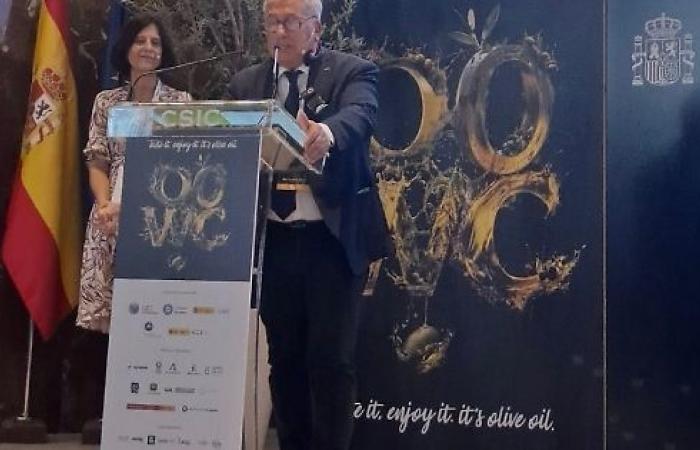Through the intervention of Gennaro Sicolo, as vice-president of the Advisory Committee of the International Olive Council and representing CIA Agricoltori Italiani as national vice-president, the voice of Puglia’s olive growing was also heard within the first edition of the World Congress of ‘Olive Oil (OOWC) which was held at the Auditorium of the Spanish National Research Council (CSIC) in Madrid. Gennaro Sicolo’s speech highlighted three different dynamics that are characterizing global olive growing: the difficulty in increasing olive oil consumption in the European Union market which is the main producer and consumer worldwide; the need to implement all possible actions to consolidate the phenomenon that has been underway for several years which sees the increase in olive oil consumption in non-producing countries; the challenge of intensifying collaboration between olive oil producing countries, to define rules of behavior and responsible commercial and marketing practices, such as to correspond to the needs of consumers and civil society.
CONSUMPTION IN THE EUROPEAN UNION. “There are diverging trends in olive oil consumption within the European Union, with the increase in non-producing countries, contrasted with the decline in producing countries. In 2005, per capita consumption in the four main producing countries (Spain, Italy, Greece and Portugal) was 13.7 kilograms, which decreased to 8.4 in 2021. In the same period of time, all other European Union member countries increased consumption from 0.7 to 1.1 kilograms per capita,” explained Sicolo.
“Non-producing countries had a consumption share of 11.8% as an average in the two-year period 2005-2006 which increased to 15.7% in the two-year period 2021-2022. Overall, at the European Union level, olive oil consumption remained stable at around 1.5 million tonnes per year, over the period 2012-2022, with per capita consumption stabilized at 3.5 kilograms. In light of these data, perhaps it is not wrong to believe that there is a problem with the long-term stability of olive oil sales in the European Union. It is necessary to move on to the development of interventions and initiatives to reverse the current trend and thus encourage the widespread use of olive oil by European and global consumers.
THE DYNAMICS. “There is notable growth in global olive oil trade, with trade volume almost quadrupling in the last thirty years. In recent years, phenomena external to the sector such as Covid, wars, climate change and more (for example increasingly green practices) have influenced a profound imbalance, which must be monitored to evaluate its persistence over the years. The first need is to convince national and supranational institutions to safeguard the rules of free trade, avoiding the use of protectionist measures and the use of trade wars. It is necessary to take into account the specific conditions and functioning of the market in the various countries, analyzing social and cultural variables, consumer preferences, the organization of the food chain, national trade rules”.
MORE TRANSPARENCY. “To address these challenges, operators in the olive sector need to analyze and understand the needs of consumers and civil society, move towards the ecological transition of agricultural systems; have correct and transparent information on quality, production methods, origin and authenticity of production; rely on healthy products with characteristics that improve consumer well-being and obtained in compliance with workers’ social rights; support fair prices, in line with the characteristics of quality, healthiness and nutritional values of the product”.






